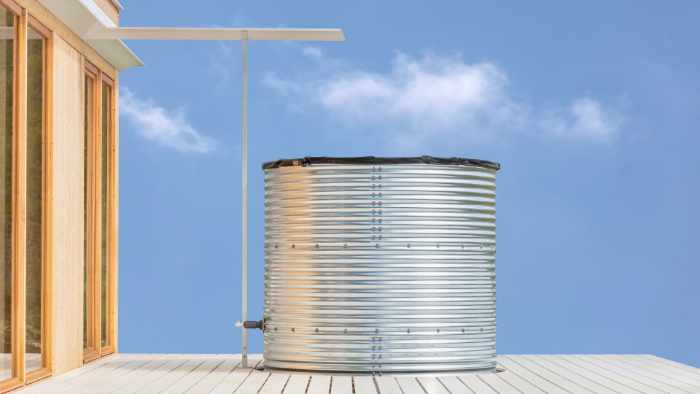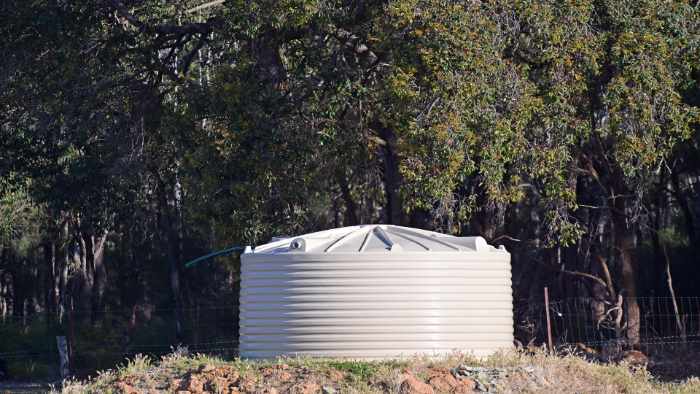Having a home rainwater collection system is an effective way to conserve water and energy. It provides a sustainable solution to the limited source of potable water in the world. A rainwater harvesting setup is efficient for utilizing free water supplied by nature. But what do you know about maintaining your steel rainwater tank?

Rainwater collection has many benefits. However, it also requires regular maintenance, like cleaning your tanks and testing the water for heavy metals and bacteria. It’s one of the crucial factors that some homeowners tend to put aside, leaving the tanks rusty, sludgy, and no longer safe for use.
That said, here are five reasons why steel rainwater tank maintenance is essential.
1. Preventing Heavy Metal Contamination
Rainwater tank companies offer the best quality tanks with preventive measures concerning contamination. Some options from The Tank Factory and other steel rainwater tank providers are generally safe from heavy metals. However, maintenance is still necessary to ensure your health and safety, especially for potable use.
Rainwater tank contamination is a common problem that arises due to maintenance failure. Most of the time, these contaminants can’t be seen by the naked eye. Therefore, you’ll need an expert for regular water testing and tank inspection.
In most residential rainwater tanks, heavy metals like cadmium, aluminum, iron, and zinc are the most frequent contaminants. While some of these metals are harmless in tiny amounts, high concentrations can cause serious illnesses. Some common health symptoms of heavy metal poisoning are diarrhea, nausea, vomiting, abdominal pain, weakness, and chills. You can avoid these health risks by testing your water at least every six months.
2. Ensuring the Longevity of Your Tank

Maximizing the durability and longevity of your rainwater tank is essential to getting a good return for investing in an eco-friendly home. Properly maintained steel rainwater tanks can last up to 30 years. The extra effort to clean and inspect your storage system is efficient for saving your budget.
Rust and algae growth is expected in poorly maintained steel rainwater tanks. When not addressed immediately, these issues can make your tank unusable. Frequent maintenance, although costly, is still more economical than installing new tanks every few years.
For areas near the coastline, painting your tanks with a protective coat can prevent rust. However, you can also purchase from companies providing high-quality tanks for this specific condition. Doing so will ensure your rainwater tanks will last and will help provide safe and clean water for decades.
3. Maintaining Water Quality
Maintaining water quality is one of the primary reasons for steel rainwater tank maintenance. Regardless of rainwater usage, ensuring it’s clean and safe is always a must. Water quality is crucial even if you’re only using it to water your garden or wash your car.
The quality of rainwater depends on several factors, such as environmental pollution, collection method, and storage. If you’re residing in an area with low pollution levels and your method is up to standard, the next thing to consider is your storage tanks. No matter how clean and safe your harvesting system is, failure to maintain your rainwater tanks regularly can still lead to poor water quality.
Some signs of poor water quality are cloudiness and discoloration. Filtered rainwater should always be clean, even if it’s not potable. For drinkable water, a foul smell or taste indicates contamination. In this case, it’s best to refrain from using rainwater and immediately call for inspection and maintenance.
4. Eradicating Mosquito Infestation
Mosquitos breed in clear stagnant waters. Exposed collected rainwater is a perfect breeding ground for these insects, which can lead to the spread of serious diseases. Regular rainwater tank maintenance is an efficient way to eradicate this problem.
Mosquitos and insects can crawl into tiny spaces and holes in your water tank. Thus, frequent inspection is essential for preventing infestation. Failure to do so can put your health at risk, especially if you’re using rainwater for drinking and cooking.
Aside from insects crawling into spaces and holes in your tank, they can also lay eggs on any stagnant water in your collection system. Therefore, keeping your gutters clean and free from blockage is best, along with regular roof cleaning.
5. Inhibiting Bacterial Growth
Bacterial growth is typical in poorly maintained rainwater tanks. And when you go for a whole year without cleaning the tanks, chances are they’re already growing. They can grow even faster if your tank is exposed to direct sunlight.
Algae is one of the typical bacteria found in rainwater tanks. They grow with water, carbon dioxide, and sunlight readily available in rainwater harvesting systems. If the tanks aren’t cleaned and tested regularly, they can grow without notice. A clear sign of algae growth is an earthy smell or taste. In most cases, this indication is only obvious when bacterial contamination is already severe.
Uncontrolled bacterial growth in your tanks can make your collected rainwater unsafe for use. Regular maintenance prevents significant water wastage. Plus, you can always ensure safety from disease-causing bacteria that may endanger your health.
Conclusion
Steel rainwater tank maintenance is essential for your safety. And with a simple regular inspection and cleaning can maximize your water conservation efforts. You can save more energy, money, and time in the long run.


